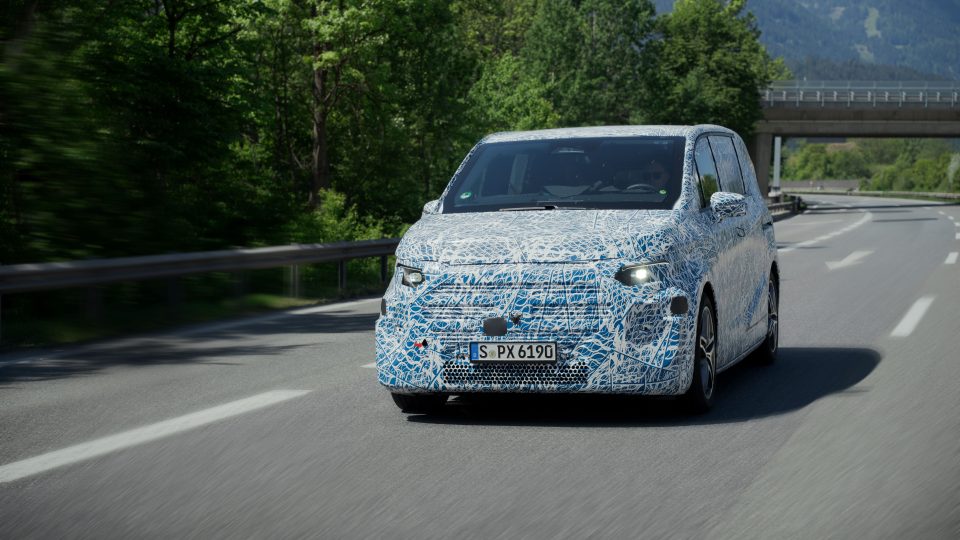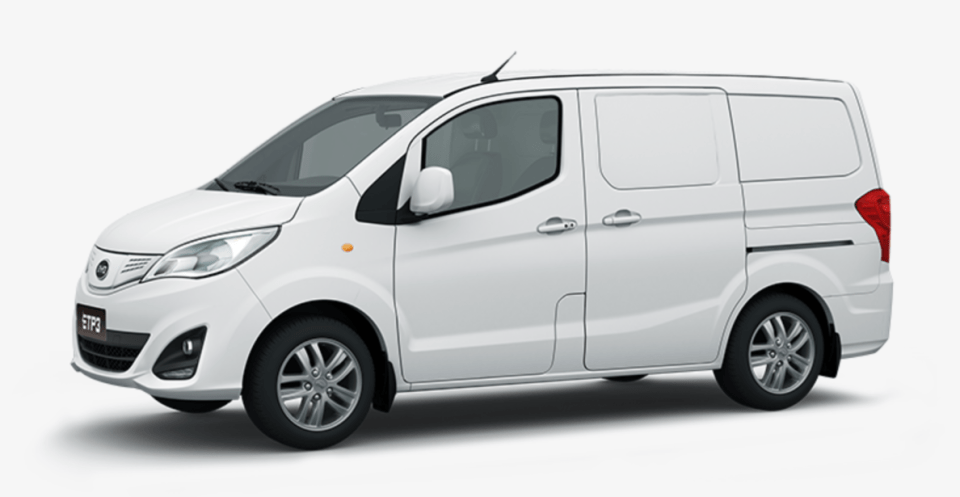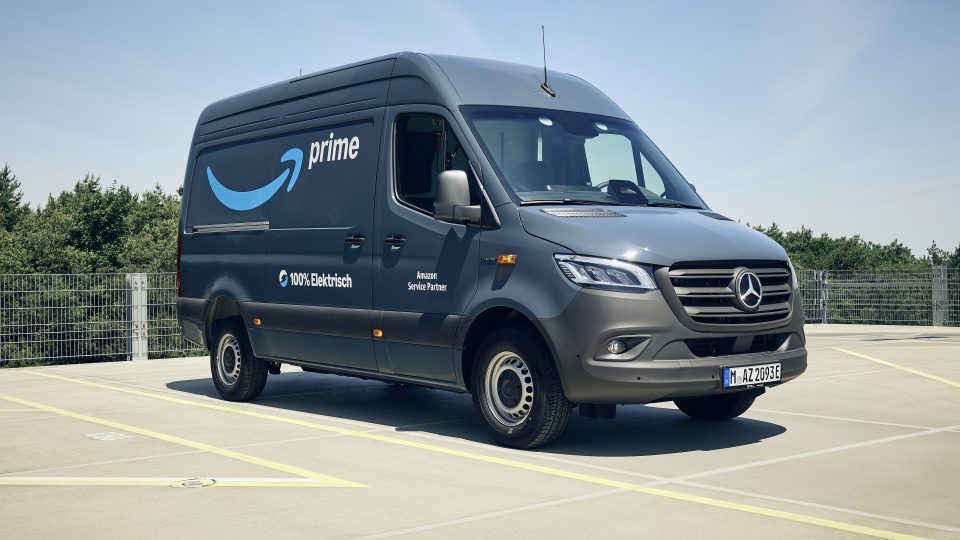Mercedes-Benz, here’s technology demonstrator van Sustaineer for last mile delivery
The demonstrator's name combines two keywords such as Sustainability and Pioneer and is of course a full-electric vehicle designed "to improve the quality of life in cities, to conserve resources and protect the climate, and to better the health and safety of the driver and other road users".
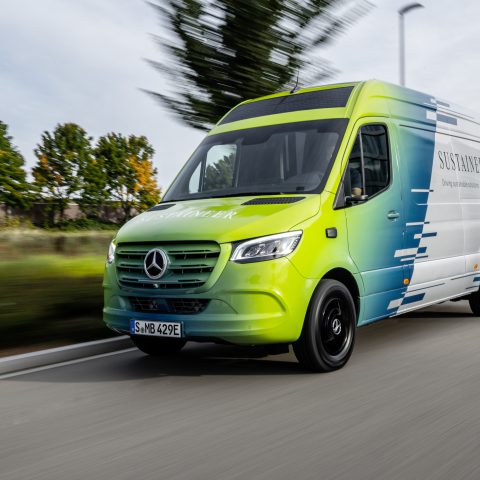
Mercedes-Benz introduced technology demonstrator van Sustaineer designed for last mile delivery based on the layout of the well-known eSprinter van. The demonstrator’s name combines two keywords such as Sustainability and Pioneer and is of course a full-electric vehicle designed “to improve the quality of life in cities, to conserve resources and protect the climate, and to better the health and safety of the driver and other road users”, as stated on the official release by Mercedes-Benz Vans. Talking about the Star family of light commercial vehicles, we recently took part in the launch event of the latest generation of Citan. There, we had the opportunity to have a chat with Mercedes developers about the upcoming electric version (see video below).
Mercedes-Benz Sustaineer, here are some innovations
Some of the remarkable innovations introduced by the Sustaineer, these include a fine particle filter on the front module and underbody, a solar panel on the roof, component parts made of recycled materials as well as a heating system which is close to the body. These innovations and technical solutions have been designed with the possibility of series production in mind, so that their use in future Mercedes-Benz Vans vehicle generations is feasible.
As part of the “Ambition 2039” business strategy, MercedesBenz Vans is pursuing the objective of making the fleet of private and commercial vans carbon neutral throughout their complete life cycle – from the development phase through to the supply network, from the company’s own manufacturing processes and the electrification of products through to the use of renewable energy for the operation of electric vehicles. As of 2022, production will be carbon neutral at all company-owned van factories worldwide from 2022 and only use electricity from renewable energy sources.
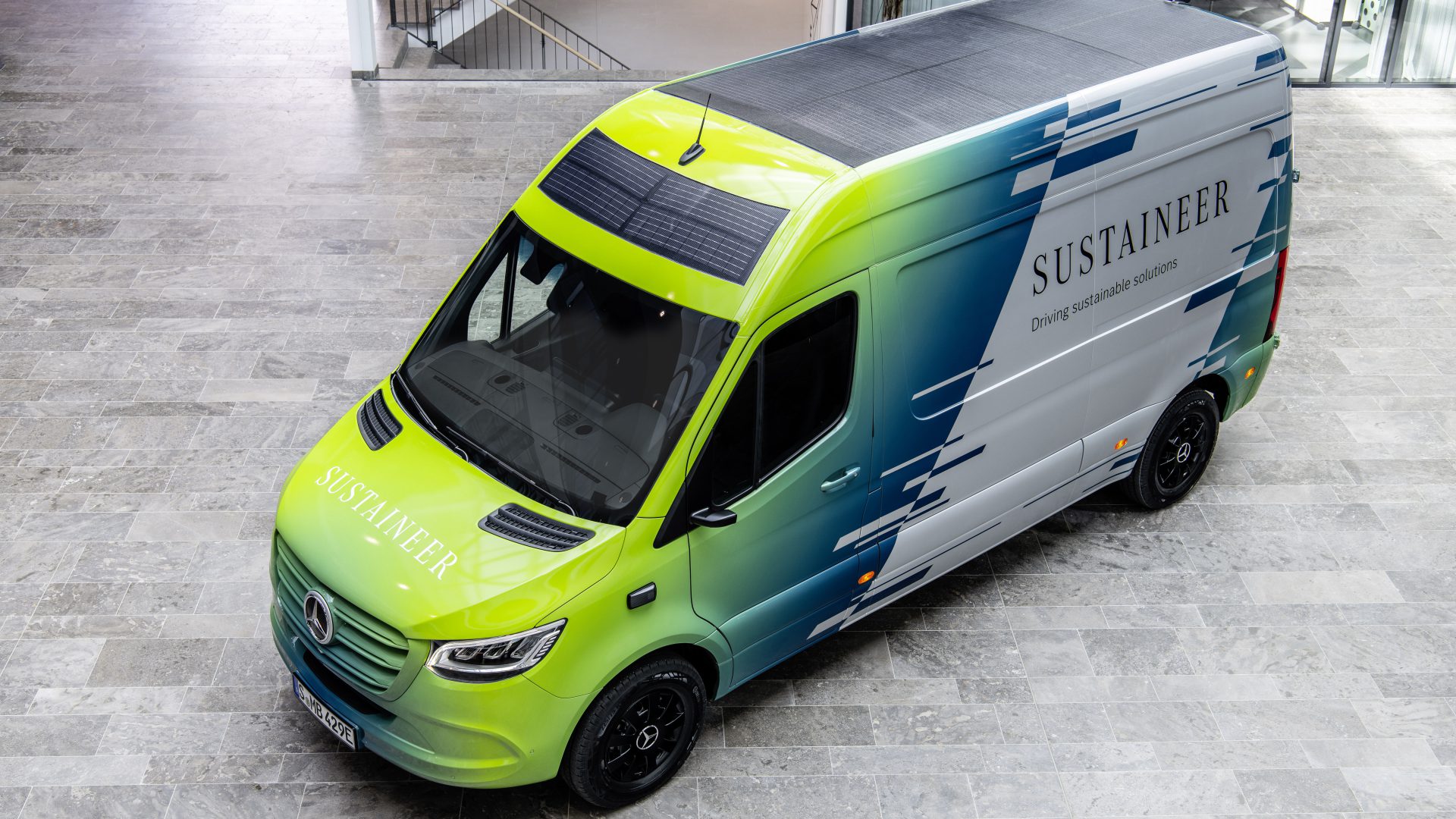
Battery components from certified mines
Furthermore, by 2030, the aim of Mercedes-Benz is to reduce the use of primary resources used in drive systems and battery technology by 40 percent compared with today’s figure. To protect human rights, the automotive manufacturer will only procure battery cells containing lithium and cobalt from certified mines in the future. Furthermore, every stage of the battery cell providers’ supply chains will be inspected according to OECD guidelines.











